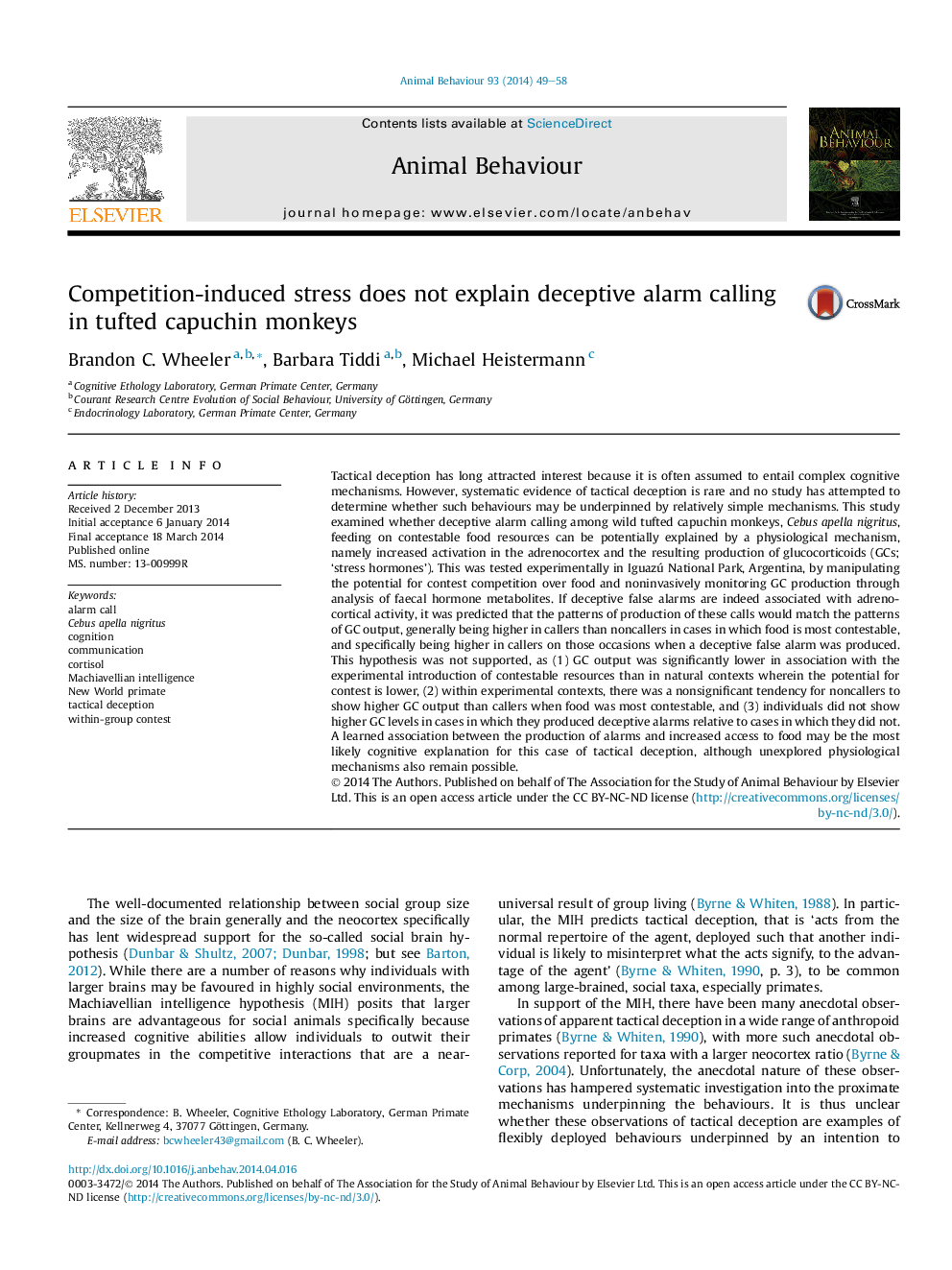| Article ID | Journal | Published Year | Pages | File Type |
|---|---|---|---|---|
| 8490425 | Animal Behaviour | 2014 | 10 Pages |
Abstract
Tactical deception has long attracted interest because it is often assumed to entail complex cognitive mechanisms. However, systematic evidence of tactical deception is rare and no study has attempted to determine whether such behaviours may be underpinned by relatively simple mechanisms. This study examined whether deceptive alarm calling among wild tufted capuchin monkeys, Cebus apella nigritus, feeding on contestable food resources can be potentially explained by a physiological mechanism, namely increased activation in the adrenocortex and the resulting production of glucocorticoids (GCs; 'stress hormones'). This was tested experimentally in Iguazú National Park, Argentina, by manipulating the potential for contest competition over food and noninvasively monitoring GC production through analysis of faecal hormone metabolites. If deceptive false alarms are indeed associated with adrenocortical activity, it was predicted that the patterns of production of these calls would match the patterns of GC output, generally being higher in callers than noncallers in cases in which food is most contestable, and specifically being higher in callers on those occasions when a deceptive false alarm was produced. This hypothesis was not supported, as (1) GC output was significantly lower in association with the experimental introduction of contestable resources than in natural contexts wherein the potential for contest is lower, (2) within experimental contexts, there was a nonsignificant tendency for noncallers to show higher GC output than callers when food was most contestable, and (3) individuals did not show higher GC levels in cases in which they produced deceptive alarms relative to cases in which they did not. A learned association between the production of alarms and increased access to food may be the most likely cognitive explanation for this case of tactical deception, although unexplored physiological mechanisms also remain possible.
Keywords
Related Topics
Life Sciences
Agricultural and Biological Sciences
Animal Science and Zoology
Authors
Brandon C. Wheeler, Barbara Tiddi, Michael Heistermann,
